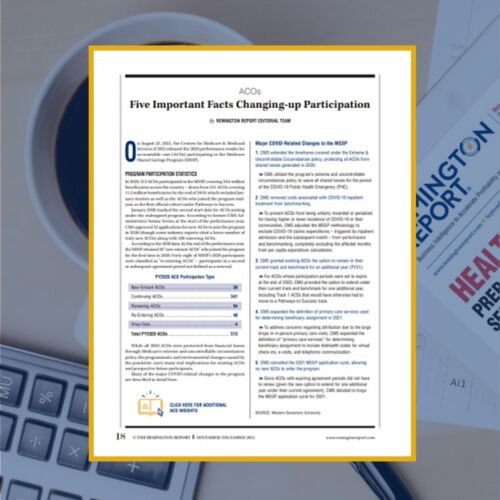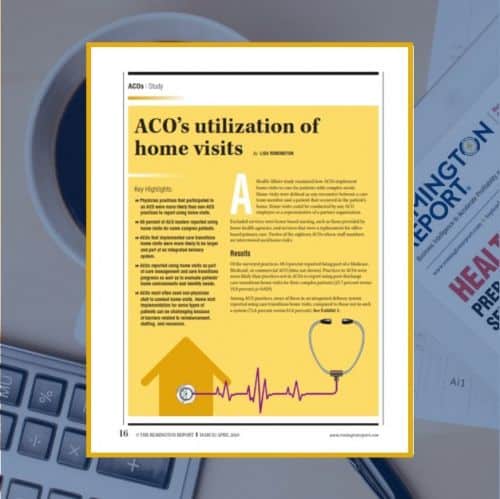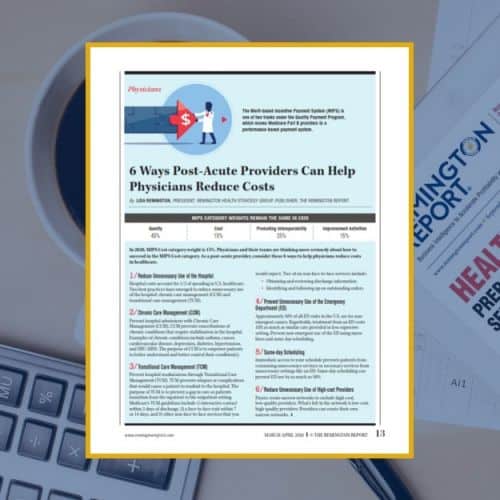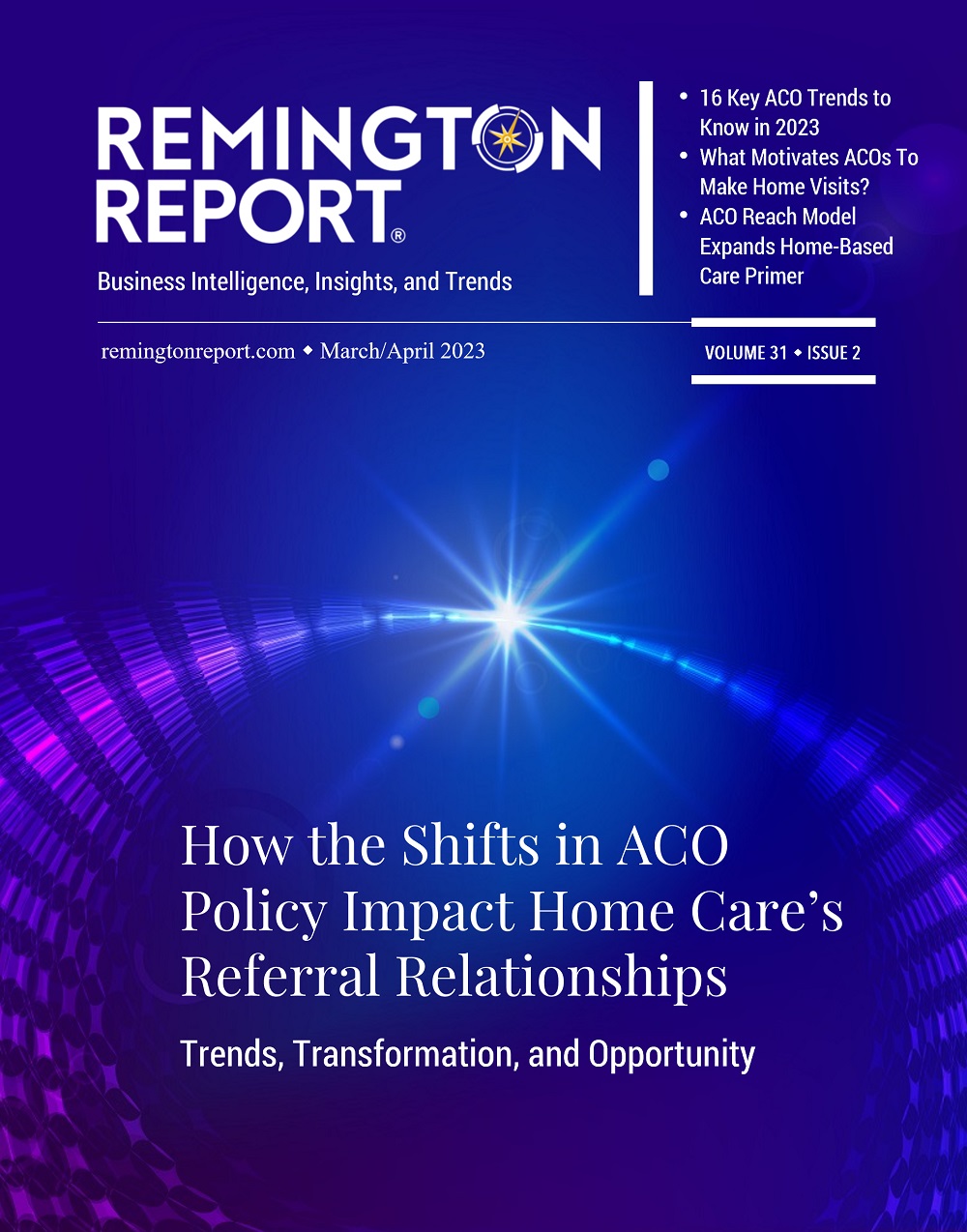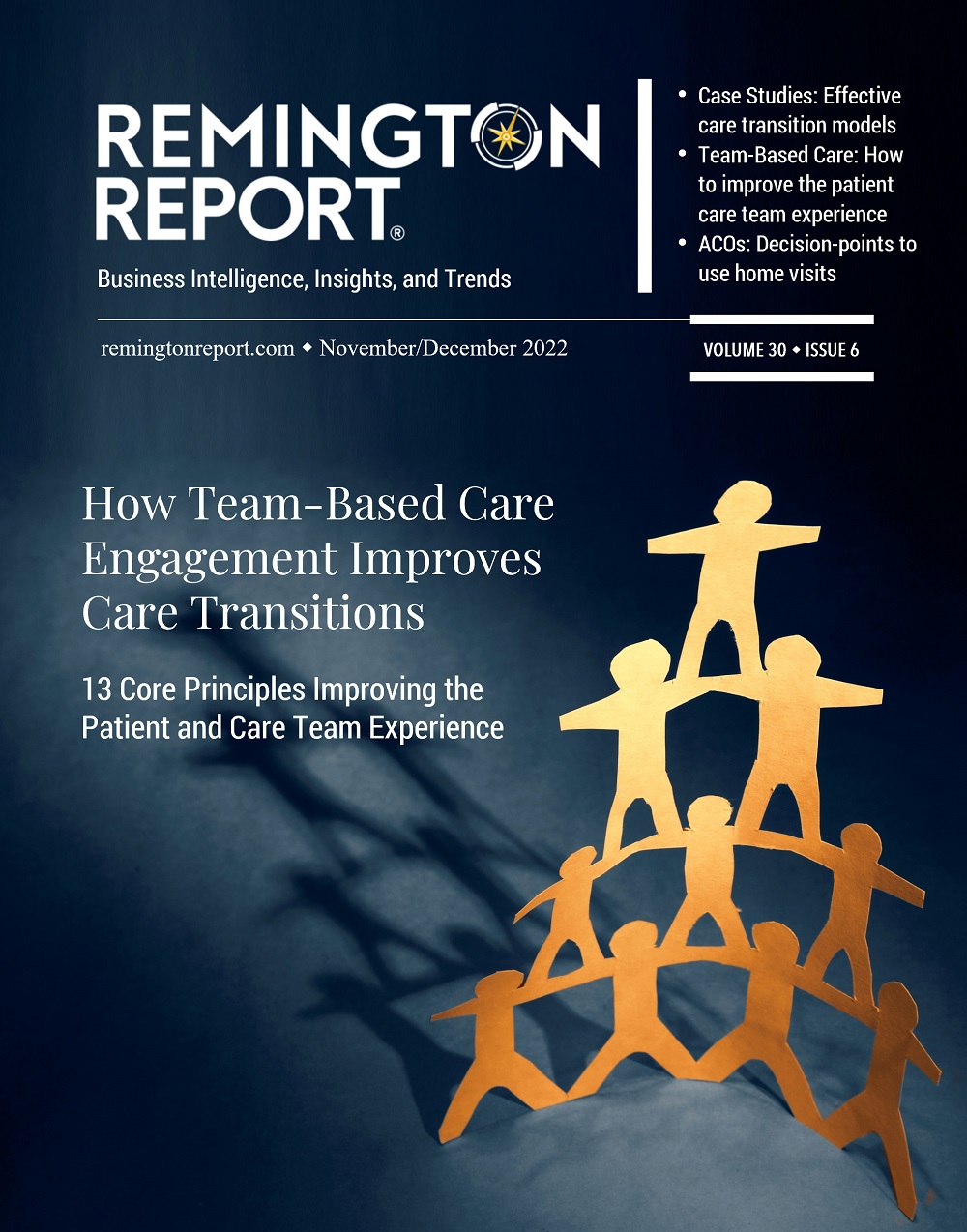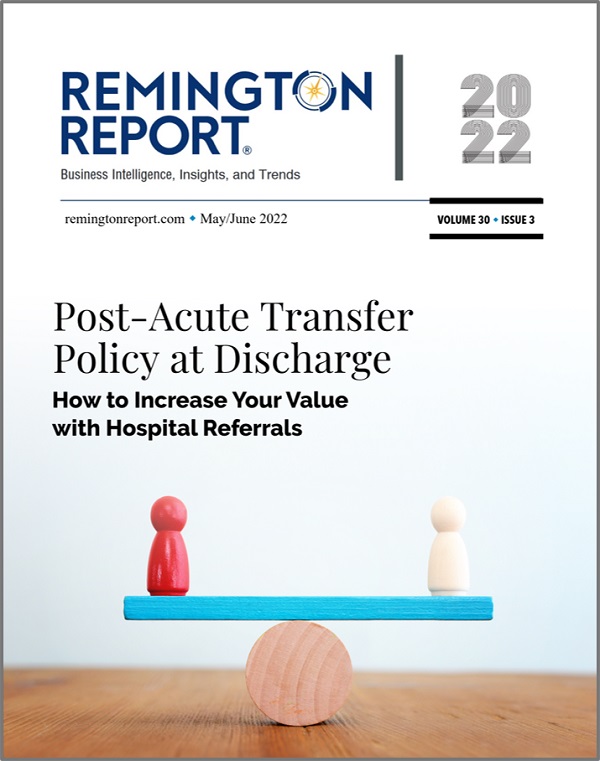-
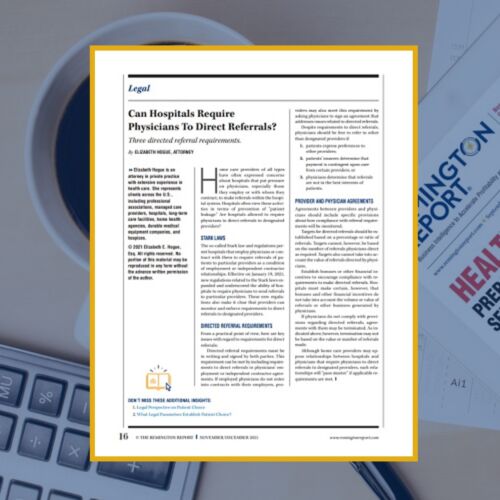 Effective on January 19, 2021, new regulations related to the Stark laws expanded and underscored the ability of hospitals to require physicians to send referrals to particular providers. These new regulations also make it clear that providers can monitor and enforce requirements to direct referrals to designated providers. This article is free to 1-Year Classic and 2-Year Premium subscribers.
Effective on January 19, 2021, new regulations related to the Stark laws expanded and underscored the ability of hospitals to require physicians to send referrals to particular providers. These new regulations also make it clear that providers can monitor and enforce requirements to direct referrals to designated providers. This article is free to 1-Year Classic and 2-Year Premium subscribers. -
 The first two years of the Comprehensive Care for Joint Replacement (CJR) saved Medicare more than?$1,00 per episode. CJR, a five-year Medicare program rolled out in 2016, pays participating?hospitals for hip and knee replacements by episode of care: from admission to 90 days post discharge. This article is free to 1-Year Classic and 2-Year Premium subscribers.
The first two years of the Comprehensive Care for Joint Replacement (CJR) saved Medicare more than?$1,00 per episode. CJR, a five-year Medicare program rolled out in 2016, pays participating?hospitals for hip and knee replacements by episode of care: from admission to 90 days post discharge. This article is free to 1-Year Classic and 2-Year Premium subscribers. -
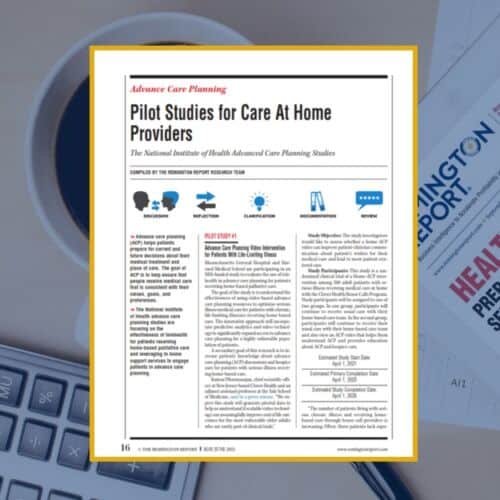 The National Institute of Health advance care planning studies are focusing on the effectiveness of telehealth for patients receiving home-based palliative care and leveraging in home support services to engage patients in advance care planning. Learn more about the pilot studies supporting this research. This article is free to 1-Year Classic and 2-Year Premium subscribers.
The National Institute of Health advance care planning studies are focusing on the effectiveness of telehealth for patients receiving home-based palliative care and leveraging in home support services to engage patients in advance care planning. Learn more about the pilot studies supporting this research. This article is free to 1-Year Classic and 2-Year Premium subscribers. -
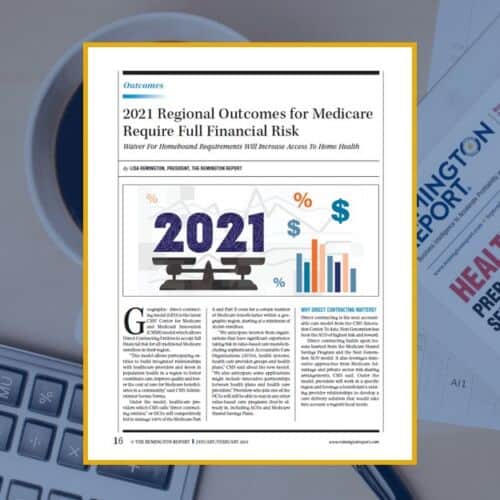 Geographic direct-contracting model (GEO) is the latest CMS Center for Medicare and Medicaid Innovation (CMMI) model which allows Direct Contracting Entities to accept full financial risk for all traditional Medicare enrollees in their region. Three options enhance Medicare benefits and provide waivers for care in the home. This article is free to 1-Year Classic and 2-Year Premium subscribers.
Geographic direct-contracting model (GEO) is the latest CMS Center for Medicare and Medicaid Innovation (CMMI) model which allows Direct Contracting Entities to accept full financial risk for all traditional Medicare enrollees in their region. Three options enhance Medicare benefits and provide waivers for care in the home. This article is free to 1-Year Classic and 2-Year Premium subscribers. -
 A growing number of initiatives are expanding to address social determinants of health. Payers, health systems, community-based organizations, and government entities are partnering together to create statewide efforts to improve community health and social care. This article is free to 1-Year Classic and 2-Year Premium subscribers.
A growing number of initiatives are expanding to address social determinants of health. Payers, health systems, community-based organizations, and government entities are partnering together to create statewide efforts to improve community health and social care. This article is free to 1-Year Classic and 2-Year Premium subscribers.



